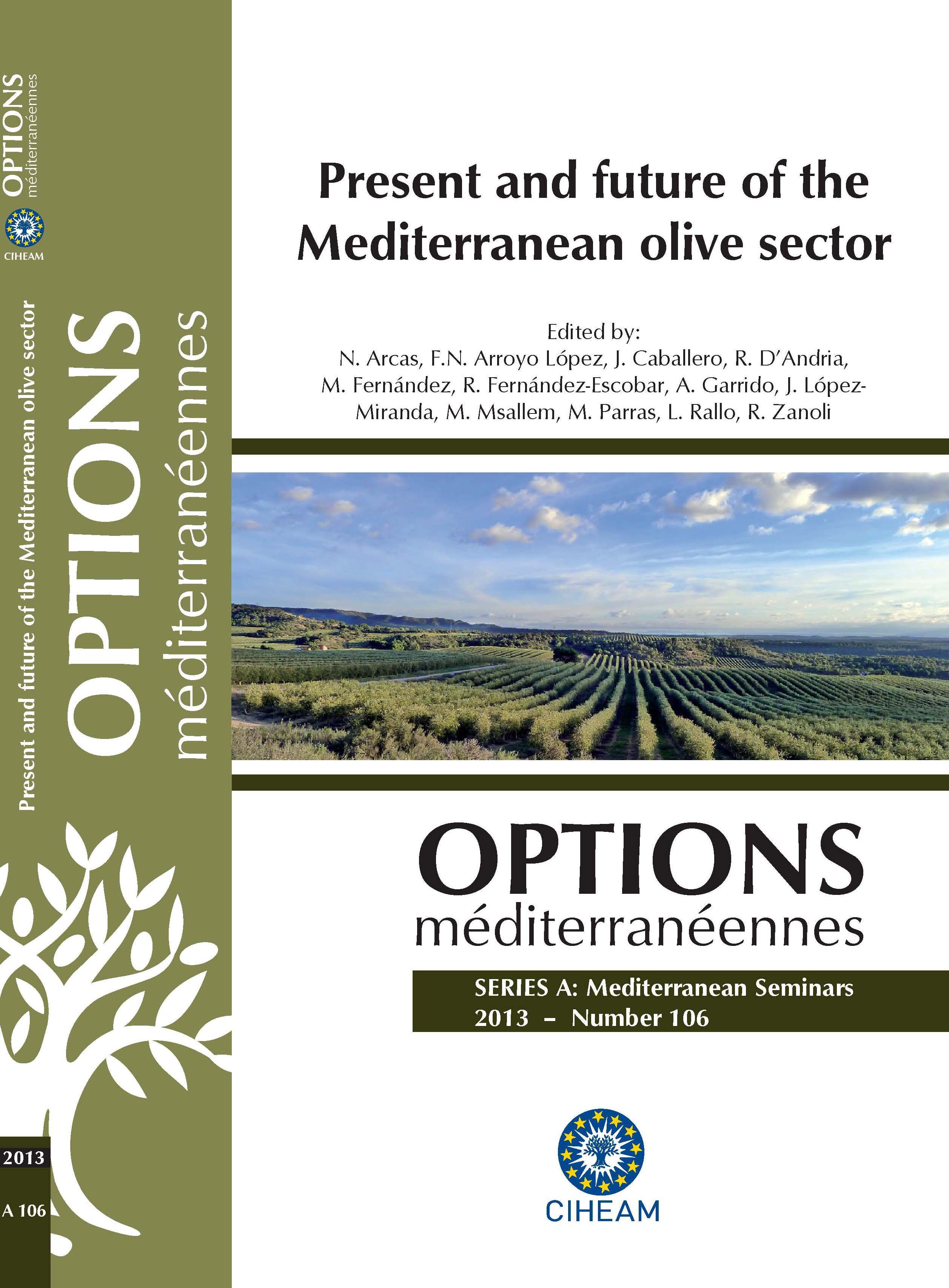| Article précédent | p. 87-95 | Article suivant |
New global and local marketing strategies: creation of added value through differentiation and high quality products
Market orientation is the greatest challenge confronting olive oil companies who want to open new markets and increase sales in existing markets. To do this, first companies must determine the relevant markets in which they wish to act, based on analysis of consumer behaviour and their own strengths. Once these markets are identified companies must segment the market, select target markets and positioning. In this sense, an olive oil differentiation strategy is the mainstay of positioning management in order to create a product that is perceived as unique in a chosen market segment. Sources of differentiation must be identified prior to determining a market segment. Aspects of differentiation include internal attributes of oil; or other external elements increasingly valued by consumers, such as environmental issues, the search for local products or those linked to a specific territory, or after sales services. In this sense, extra virgin olive oils have a number of attributes that are highly valued by consumers (quality, health, naturalness, territoriality, environmental respect, brand, origin, method of production, etc.) allowing various differentiation strategies.
L'orientation du marché est le plus grand défi posé aux compagnies liées à l'huile d'olive souhaitant ouvrir de nouveaux marchés ainsi qu'augmenter leurs ventes sur les marchés existants. Pour ce faire, ces compagnies doivent d'abord déterminer les marchés d'intérêt où elles désirent intervenir, en se basant sur l'analyse du comportement des consommateurs et sur leurs propres points forts. Une fois que ces marchés ont été identifiés, les compagnies doivent segmenter le marché, sélectionner les marchés cibles et le positionnement. Dans ce sens, une stratégie de différenciation pour l'huile d'olive constitue le pilier de la gestion du positionnement afin de créer un produit qui soit perçu comme unique sur un segment de marché choisi. Les sources de différenciation doivent être identifiées avant de déterminer un segment de marché. Les aspects de différenciation incluent les attributs internes de l'huile, ou d'autres éléments externes de plus en plus appréciés par les consommateurs, tels que les aspects environnementaux, la recherche de produits locaux ou liés à un terroir spécifique, ou les services après-vente. Dans ce sens, les huiles d'olive vierge extra possèdent plusieurs attributs fortement appréciés des consommateurs (qualité, santé, naturalité, territorialité, respect de l'environnement, type, origine, méthode de production, etc.) permettant diverses stratégies de différenciation.
- [ Afficher ]
- [ Télécharger ]
- [ Exporter la citation ]
Vous pouvez télécharger la citation au format :
- [ Imprimer ]
-
Mots-clés
COMMERCIALISATION, DIFFERENCIATION DES PRODUITS, HUILE D'OLIVE, INFORMATION SUR LE MARCHECiter cet article
Parras M. New global and local marketing strategies: creation of added value through differentiation and high quality products. In : Arcas N. (ed.), Arroyo López F.N. (ed.), Caballero J. (ed.), D'Andria R. (ed.), Fernández M. (ed.), Fernandez Escobar R. (ed.), Garrido A. (ed.), López-Miranda J. (ed.), Msallem M. (ed.), Parras M. (ed.), Rallo L. (ed.), Zanoli R. (ed.). Present and future of the Mediterranean olive sector . Zaragoza: CIHEAM / IOC, 2013. p. 87-95. (Options Méditerranéennes : Série A. Séminaires Méditerranéens; n. 106). International Seminar: Present and Future of the Mediterranean Olive Sector, 2012/11/26-28, Zaragoza (Spain). http://om.ciheam.org/om/pdf/a106/00006808.pdf



